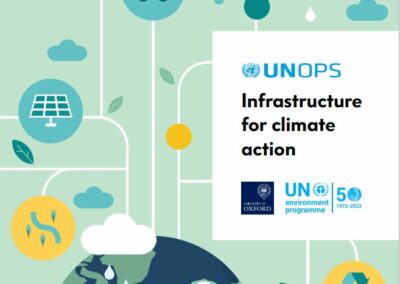Ground-breaking modelling allows planning towards a resilient, reliable future for UK water resources, whilst protecting the natural environment
On 28 October 2020, ITRC Director Jim Hall presented the sixth webinar in this popular series – examining Britain’s water-supply system and the interdependencies between water and energy. With current trends in climate change and increasing pressures of demand from a growing population, research and modelling in this area is crucial to planning towards a future with reliable and environmentally-sustainable water resources for all – households, agriculture and industry. The ambition evident in the webinar represents a major strategic shift in thinking – from looking at water supply at a company-by-company level, with no resilience planning, to pushing towards a regional and national strategical approach, facilitated by the capacity to create a national water resilience picture that enables understanding and stress-testing of extreme drought situations and the multiple pressures inherent on the network.
Presentations were made on ITRC’s contributions to this vital debate by Dr Barney Dobson, Research Associate, Department for Civil and Environmental Engineering, Imperial College London and Edward Byers, Research Scholar, Energy Programme, International Institute for Applied Systems Analysis (IIASA).
Keynote speakers were Jean Spencer, Independent Chair of the National Water Resources Framework Senior Steering Group and Jonathan Dennis, Principal, Policy and Analytics at Regulators’ Alliance for Progressing Infrastructure Development (RAPID).
Jean opened the webinar with an overview of the Water Resources Framework (WRF)’s important and ongoing series of work to develop long-term, resilient water resource planning. The National Framework for Water Resources, published in March this year, comprises research from previous studies by Water UK and National Infrastructure Commission (NIC), and takes a collaborative and regional approach, working with government regulators, water companies, water-using sectors, academics and environmental NGOs to deliver a long-term planning framework for the whole of England. At the heart of the study is the ambition for restoring, protecting and improving the environment that’s the source for our supplies.
Barney then presented the ITRC modelling that informed the Framework – the creation and development of the National Water Resource Model, the first national-scale water supply model of England and Wales. Using data including the key elements of the water supply system, rainfall and abstractions, climate and soil moisture, the model creates coherent simulations of national water supply, allowing us to see and plan for extremes of climate, in particular drought, in the near future (2050) and the far future (2100). It also allows sensitivity to other uncertainties, such as population growth – giving supply-side and demand-side options, key when considering the large suites of available options and optimising sequences of investments.
More pioneering, national-scale research on the interdependencies between water use and energy supply was presented by Ed. With traditional carbon fuel electricity generation and carbon capture and storage (CCS) using large amounts of fresh water, modelling allows us to plan for future technologies, energy mixes and siting that conserve water – and identifies droughts as a risk to reliable electricity from thermo-electric plants, with huge cost implications.
Jonathan spoke of RAPID’s work, which specifically supports water-supply infrastructure development by addressing barriers. He identified modelling capacity and continued collaboration with Oxford and Manchester Universities as key to this ambition, making the point that it’s essential for suppliers to explore a range of strategic water-resource options as minutely as possible before making up to £8bn worth of future infrastructure development. Continued modelling, he argued, also allows us to work through challenges such as the difficulties in representing the natural environment and in integrating local and national data/outcomes, prompting ‘informed conversations’ that ultimately lead to the right water infrastructure.
Watch the webinar on catch up, below:


